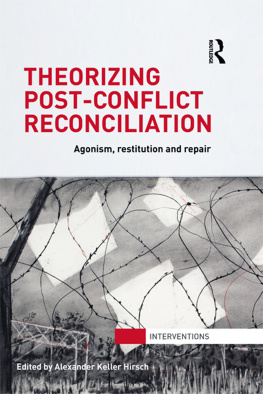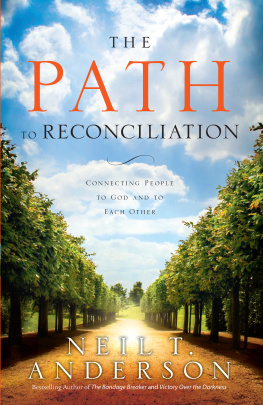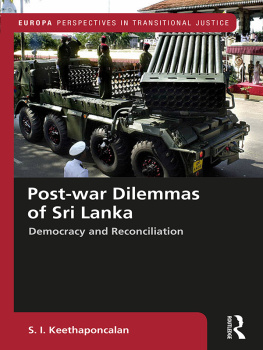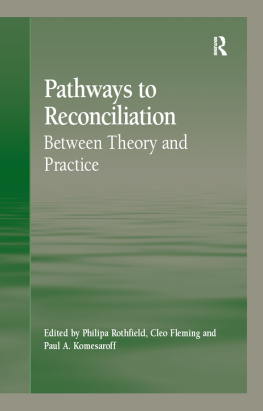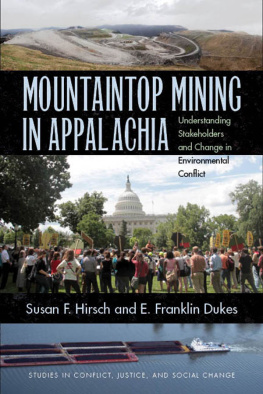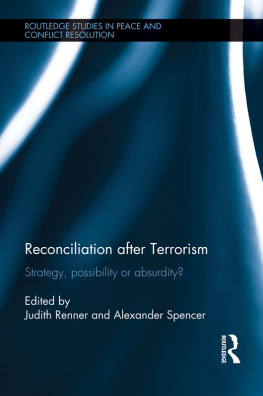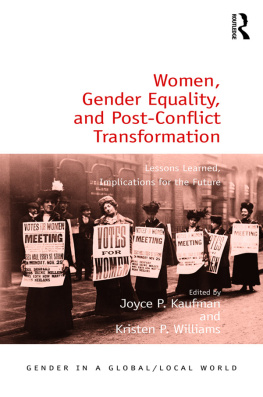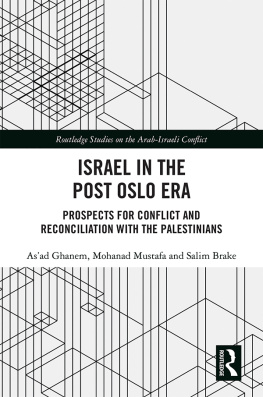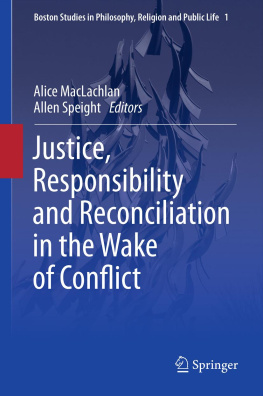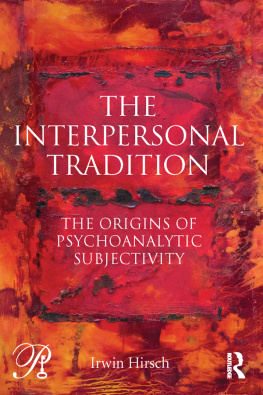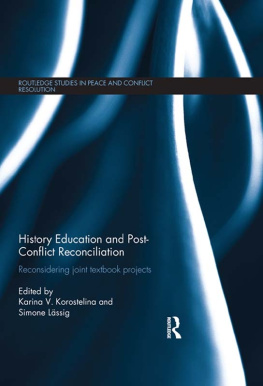Alexander Hirsch - Theorizing Post-Conflict Reconciliation: Agonism, Restitution and Repair
Here you can read online Alexander Hirsch - Theorizing Post-Conflict Reconciliation: Agonism, Restitution and Repair full text of the book (entire story) in english for free. Download pdf and epub, get meaning, cover and reviews about this ebook. year: 2011, publisher: Routledge, genre: Politics. Description of the work, (preface) as well as reviews are available. Best literature library LitArk.com created for fans of good reading and offers a wide selection of genres:
Romance novel
Science fiction
Adventure
Detective
Science
History
Home and family
Prose
Art
Politics
Computer
Non-fiction
Religion
Business
Children
Humor
Choose a favorite category and find really read worthwhile books. Enjoy immersion in the world of imagination, feel the emotions of the characters or learn something new for yourself, make an fascinating discovery.
- Book:Theorizing Post-Conflict Reconciliation: Agonism, Restitution and Repair
- Author:
- Publisher:Routledge
- Genre:
- Year:2011
- Rating:3 / 5
- Favourites:Add to favourites
- Your mark:
- 60
- 1
- 2
- 3
- 4
- 5
Theorizing Post-Conflict Reconciliation: Agonism, Restitution and Repair: summary, description and annotation
We offer to read an annotation, description, summary or preface (depends on what the author of the book "Theorizing Post-Conflict Reconciliation: Agonism, Restitution and Repair" wrote himself). If you haven't found the necessary information about the book — write in the comments, we will try to find it.
Alexander Hirsch: author's other books
Who wrote Theorizing Post-Conflict Reconciliation: Agonism, Restitution and Repair? Find out the surname, the name of the author of the book and a list of all author's works by series.
Theorizing Post-Conflict Reconciliation: Agonism, Restitution and Repair — read online for free the complete book (whole text) full work
Below is the text of the book, divided by pages. System saving the place of the last page read, allows you to conveniently read the book "Theorizing Post-Conflict Reconciliation: Agonism, Restitution and Repair" online for free, without having to search again every time where you left off. Put a bookmark, and you can go to the page where you finished reading at any time.
Font size:
Interval:
Bookmark:
University of California, Riverside, CA, USA
University of Victoria, Victoria, BC, Canada
Reconciliation
Nick Vaughan-Williams, University of Warwick
Critical Theorists and International Relations Edited by Jenny Edkins and Nick Vaughan-Williams Ethics as Foreign Policy Britain, the EU and the other Dan Bulley Universality, Ethics and International Relations A grammatical reading Vronique Pin-Fat | Insuring Security Biopolitics, security and risk Luis Lobo-Guerrero Foucault and International Relations New critical engagements Edited by Nicholas J. Kiersey and Doug Stokes International Relations and Non Western Thought Imperialism, colonialism and investigations of global modernity Edited by Robbie Shilliam |
The Time of the City Politics, philosophy, and genre Michael J. Shapiro Governing Sustainable Development Partnership, protest and power at the World Summit Carl Death Madness in International Relations Psychology, security and the global governance of mental health Alison Howell Spatiality, Sovereignty and Carl Schmitt Geographies of the nomos Edited by Stephen Legg Politics of Urbanism Seeing like a city Warren Magnusson Beyond Biopolitics Theory, violence and horror in world politics Franois Debrix and Alexander D. Barder The Politics of Speed Capitalism, the state and war in an accelerating world Simon Glezos | Autobiographical International Relations I, IR Edited by Naeem Inayatullah War and Rape Law, memory and justice Nicola Henry Politics and the Art of Commemoration Memorials to struggle in Latin America and Spain Katherine Hite Indian Foreign Policy The politics of postcolonial identity Priya Chacko Politics of the Event Time, movement, becoming Tom Lundborg Theorizing Post-Conflict Reconciliation Agonism, restitution and repair Edited by Alexander Keller Hirsch |
Reconciliation
Alexander Keller Hirsch

by Routledge
2 Park Square, Milton Park, Abingdon, Oxon, OX14 4RN
by Routledge
711 Third Avenue, New York, NY 10017
Contributors, their contributions
Font size:
Interval:
Bookmark:
Similar books «Theorizing Post-Conflict Reconciliation: Agonism, Restitution and Repair»
Look at similar books to Theorizing Post-Conflict Reconciliation: Agonism, Restitution and Repair. We have selected literature similar in name and meaning in the hope of providing readers with more options to find new, interesting, not yet read works.
Discussion, reviews of the book Theorizing Post-Conflict Reconciliation: Agonism, Restitution and Repair and just readers' own opinions. Leave your comments, write what you think about the work, its meaning or the main characters. Specify what exactly you liked and what you didn't like, and why you think so.

